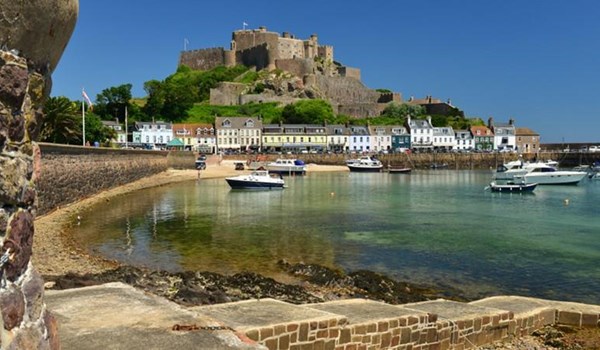Jurisdictions
Regions
Industry Sectors
18/04/22
JERSEY: Financial services sector supports 2.4m jobs and US$59.83bln of economic activity each year, according to new report.

As published on zawya.com, Monday 18 April, 2022.
A new report, commissioned by Jersey Finance, explores Jersey’s global economic footprint and highlights the growing impact and economic benefits of the capital flows and value chains that Jersey’s financial services sector facilitates in the context of Asia and the Middle East.
‘Jersey’s Contribution to Global Value Chains’ report, from the Centre of Economics and Business Research (Cebr), was undertaken to understand Jersey’s role within global value chains (GVCs) and illustrates the island’s role as a crucial international financial and economic conduit.
The report shows that:
- 2.4m jobs in Asia and the Middle East were supported through value chains facilitated by Jersey on average each year, during the period examined (2017 - 2020). For every job in Jersey’s financial services industry, 380 were supported globally each year.
- On average, US$59.83 billion* (bn) of GDP in Asia and Middle East (0.2%) was supported through value chains facilitated in Jersey.
- During the period examined, over a quarter (27%) of all the global economic activity supported by Jersey’s value chains, took place in Asia and the Middle East each year on average, and the region was the largest beneficiary outside the UK.
- US$378.5bn of capital from Jersey was allocated to Asia and the Middle East in 2020, up 14% on the previous year, and a growth of 74% since 2017.
- In the funds industry, Asia and the Middle East made up nearly a third (30%) of all the funding sources for Jersey administered and domiciled funds in 2020, with US$111.46bn of AUM. These assets were up 25% year-on-year and made up a larger proportion than North America.
- During the period examined, Asia and the Middle East enjoyed the strongest growth globally in terms of capital allocated by Jersey administered and domiciled funds. In 2017, US$49.02 bn (23%) of capital administered in Jersey was invested into Asian countries. However, by 2020 this grew to US$142.6 bn, 39% of all global allocation, and up 21% on 2019.
- Globally US$1.82 trillion of capital was intermediated in Jersey each year on average, supporting US$221.47 bn of global economic output, 5.1 million jobs worldwide, and US$95.32 bn in associated wages through Global Value Chains facilitated by the island.
“Capital is pooled in Jersey and subsequently redistributed through value chains,” said Joe Moynihan, Chief Executive at Jersey Finance. “This redistributed capital is utilised worldwide, generating further real economic activity, translating to employment opportunities and wage payments for individuals. Jersey plays a critical role as a facilitator of this economic activity – it improves the ease with which capital can circumnavigate the global economy.”
Since the 1960s, Jersey has been a global destination for the administration of trusts. Each year on average, between 2017 and 2020, the estimated capital administered by the trusts and asset holding vehicles sector – encompassing both private and corporate clients – was US$1.48 trillion. This supported 0.20% of global GDP and a scale of economic activity in line with the GVA of Hungary in 2020.
Jersey is a globally recognised centre of excellence for fund management and fund administration. The increase in Jersey’s fund sector’s capital base from 2017 to 2020 was 71.5%, from US$215.1 bn to US$366.87 bn, highlighting the strength of Jersey’s fund administration sector.
The banking industry in Jersey is another significant component of the economy’s financial services sector, serving markets across the globe. On average, during the period examined, it is estimated that US$184.95bn of assets were administered by the sector annually, supporting US$19.38 bn of global GDP via value chains.
The research estimates that global employment supported by value chains intermediated in Jersey was 5.1 million on average over the period. In comparison, just 60,000 people were directly employed in Jersey in 2020. The analysis also indicates that on average for every job in Jersey’s financial services sector, the value chains facilitated supported an additional 380 jobs globally.
Owen Good, Managing Economist at CEBR, said: “The figures show that, although Jersey’s GDP is relatively small compared to many nations, the island makes a very significant impact on the global economy. Our research also found that despite the global economic turmoil resulting from the COVID-19 pandemic, the impact on Jersey’s role in supporting global value chains has been limited and that Jersey’s robust contribution looks set to continue.”
The new research quantifying Jersey’s global economic footprint can be viewed and downloaded via this link: https://www.jerseyfinance.je/our-work/jerseys-contribution-to-global-value-chains/



